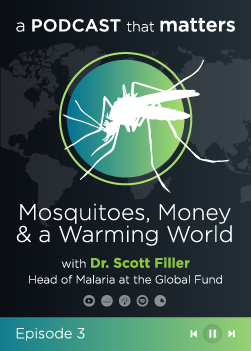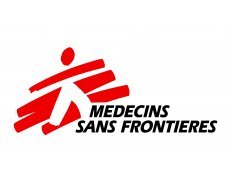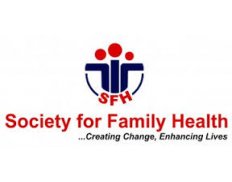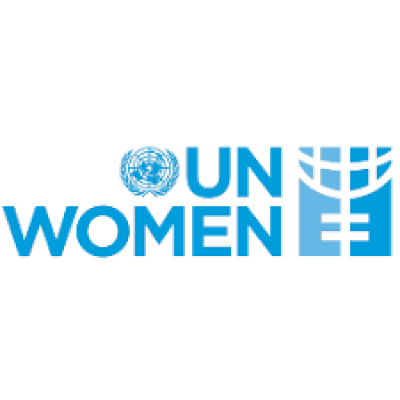Details
Description
Background
UN Women is grounded in the vision of equality as enshrined in the Charter of the United Nations, it works for the elimination of discrimination against women and girls; the empowerment of women; and the achievement of equality between women and men as partners and beneficiaries of development, human rights, humanitarian action and peace and security.
Background; The pilot project: UN Women Nigeria is implementing a pilot project on Biogas in Nigeria “Rural Women’s Empowerment through the Integration of Biogas Production into the Mixed Crop Production and Cattle Rearing Livelihood Systems.’’ Due to the over-reliance on fuel wood for cooking by the population, especially those in rural areas, Nigeria is currently one of the countries with the highest rates of deforestation in the world, at over 3.3% per year. According to available data, between 80 and 88 million m3 of the local woods in Nigeria are consumed every year, and 80% of this total is used as firewood by households, causing deforestation projected at 350,000 to 400,000 ha of forest land per year (Federal Ministry of Environment, 2006). The rate of deforestation in the country on account of the increasing demand for fuelwood is unsustainable and serves as an important contributor to climate change. Besides, families spend a significant amount of time collecting firewood from the bush with attendant economic, physical, health, and psychological consequences). Moreover, the dependence on fuelwood as a main source of cooking fuel is one of the world’s major public health challenges, causing more premature deaths than HIV/ AIDS, malaria, and tuberculosis combined. More than 64,600 people die from this yearly in Nigeria, which is the highest in Africa (Clean Cooking Alliance, 2020; WHO 2021).
In Nigeria, the majority of the rural households, especially in the northern region, are engaged in crop and livestock farming as their primary activity, thus, a huge opportunity exists to work with these farmer households to transition to cleaner stoves and fuels for cooking, because these farmers have ready sources of feedstock that can be converted from waste to clean cooking energy. Integrating the production of biogas into their mixed crop and livestock farming systems in rural areas of Northern Nigeria is, therefore, an appropriate way to supply enough energy at the household level as well as to contribute to the management of organic waste, and to protect the environment. It will also improve the health condition of the household, especially that of women and children, due to the transition to clean cooking fuel, but enable the farmers to maximize profit from the farming activities and to diversify the sources of income through the biogas value chain.
Justification:
It is pertinent to state here that an adequate supply of and access to modern energy sources is central to addressing gender inequality including gender-based violence and poverty among rural women, and many other contemporary development challenges such as climate change, food insecurity, health and environmental protection, physical insecurity, and education.
The opportunity cost of these activities prevents rural women from undertaking income-generating activities, which renders them more vulnerable to poverty than their male counterparts. The time spent gathering and utilizing traditional energy sources has implications above and beyond a woman’s health and hardship. The woman must compromise her time spent on housework, paid work, and leisure in order to meet cooking energy needs of the household (UNDP /ESMP, 2004). Rural women on average work 12 hours a day doing house chores and spend only 2 hours pursuing paid work (World Bank, 2006). The activities of women are closely connected to performing household chores which include processing food, cleaning dishes, and house (ESMP, 2004).
Objective:
The overall aim is to improve the livelihoods (by reducing time and income poverty) and health status of rural women; reduce deforestation and limit local contributions to climate change by promoting the adoption of appropriate small-scale biogas technology among farming communities.
Specific objectives therefore is to
- Reduce time and income poverty of women through their increased access to affordable clean energy, especially cooking fuel, for rural women.
- Reduce women’s physical burden and health risks associated with the use of wood and other solid biomass as fuel for cooking and heating.
- Increase rural employment and incomes for women and youth through biogas production.
- Contribute to improving soil fertility, reducing deforestation and emission of greenhouse gas.
- Improve solid organic and liquid waste management in rural communities.
Duties and Responsibilities
Purpose for the International Consultancy:
Biogas intervention is new in Nigeria. UN Women Nigeria is seeking the services of an international consultant to strengthen the capacity of selected women agro-livestock -farmers associations and cooperatives in selected states on biogas production, usage, and maintenance to meet international quality standards, and enhance their energy supply and productivity.
The specific objectives of the international consultant will include among others:
- To train the targeted women farmers on biogas usage and maintenance
- To facilitate quality certification of the locally by-products for biogas,
- To strengthen the local skills and practices for biogas production and usage,
- To facilitate the use of biogas as an important energy source in the Nigeria energy markets
Duties and Responsibilities:
The consultants will undertake activities as detailed below,
Design a training program for the biogas training: The consultants will develop a training module covering, but not limited to the following areas:
- Strategic planning participatory consultation and self-assessment tools
- Identification of by-products for biogas production and sustainability
- Management and maintenance of biogas energy
- Identification and listing of materials for biogas production. The consultants will identify and procurement needs/plan for the biogas technology.
- Assembly and fabrication of biogas equipment to be locally sourced for biogas intervention.
- Conduct on-site training for women farmers on biogas based on the modules developed.
- Strengthening of organizational capacity: Strengthening skills and management of UN Women local partners for the biogas intervention. This will include focal points from the Ministries of Women Affairs from the selected states, Centres for Women Development, Ministry of Agriculture etc. Advise the project beneficiaries and focal points of partners on the acquisition of the appropriate by-products, and low-cost technology needed to implement the good practices in biogas technology.
Deliverables:
- Inception report
- Training modules for the biogas intervention with a recommendation on appropriate technology and equipment for establishing a common biogas technology in Nigeria.
- A training program was developed to strengthen the institutional capacity of partner institutions.
- Report of pre-and post-on-site training conducted for selected women farmers, and recommendation for scale-up intervention.
Expected Timeline
The consultancy will be conducted for a total period of 40 days. The consultation period is expected to include home-based work for 10 days, and on-site activities in Nigeria for 30 days.
Competencies
Core Values:
Integrity: Demonstrates consistency in upholding and promoting the values of UN Women in actions and decisions, in line with the UN Code of Conduct.
Professionalism: Demonstrates professional competence and expert knowledge of the pertinent substantive areas of work.
Respect for Diversity: Demonstrates an appreciation of the multicultural nature of the organization and the diversity of its staff. Demonstrates an international outlook, appreciating differences in values and learning from cultural diversity.
Core Competencies :
- Ethics and Values: Demonstrate and safeguard ethics and integrity
- Organizational Awareness: Demonstrate corporate knowledge and sound judgment
- Development and Innovation: Take charge of self-development and take initiative
- Teamwork: Demonstrate ability to work in a multicultural, multiethnic environment and to maintain effective working relations with people of different national and cultural backgrounds.
- Communication and Information Sharing: Facilitate and encourage open communication and strive for effective communication
- Self-management and Emotional Intelligence: Stay composed and positive even in difficult moments, handle tense situations with diplomacy and tact, and have a consistent behavior towards others
- Conflict Management: Surface conflicts and address them proactively acknowledging different feelings and views and directing energy towards a mutually acceptable solution.
- Continuous Learning and Knowledge Sharing: Encourage learning and sharing of knowledge
- Appropriate and Transparent Decision-Making: Demonstrate informed and transparent decision-making
FUNCTIONAL COMPETENCIES:
- Excellent understanding of gender equality issues and, more broadly, women’s economic empowerment.
- Minimum HND or university degree in manufacturing, entrepreneurship, agricultural economics, gender, or another relevant field.
- Extensive experience in conducting trainings or workshops for women organizations in value additive processing of food and other agricultural commodities.
- Excellent interpersonal communication skills, including experience of the facilitation of trainings or workshops and presentations.
- Ability to establish and sustain effective relationships with clients, demonstrating understanding of client’s perspective; anticipate client needs and address them promptly.
- Leads and works with teams effectively, demonstrating emotional intelligence and good judgment.
- Excellent skills in written and spoken English.
Required Skills and Experience
Education
Master’s degree or equivalent in the field of manufacturing, business development, entrepreneurship, agricultural economics, gender, or related fields
Experience
- Excellent knowledge of gender, and experience in capacity building of women agribusiness associations and cooperatives
- At least 8 years of proven experience in conducting training in value-added processing, and organizational governance and management.
- Knowledge of the shea-butter value chain in West Africa
- Experience in developing training materials.
- Strong communication skills. Business intelligence and documentation expertise and experiences
- Experience working with communities, government institutions NGOs, and international organizations
- Good facilitation skills
- Experienced in delivering training courses to women with limited formal education.
Language Requirements:
- Fluency in written and spoken English is required and other UN languages is an asset.
Notes: In July 2010, the United Nations General Assembly created UN Women, the United Nations Entity for Gender Equality, and the Empowerment of Women. The creation of UN Women came about as part of the UN reform agenda, bringing together resources and mandates for greater impact. It merges and builds on the important work of four previously distinct parts of the UN system (DAW, OSAGI, INSTRAW, and UNIFEM), which focused exclusively on gender equality and women's empowerment. Diversity and inclusion: At UN Women, we are committed to creating a diverse and inclusive environment of mutual respect. UN Women recruits, employs, trains, compensates, and promotes regardless of race, religion, color, sex, gender identity, sexual orientation, age, ability, national origin, or any other basis covered by appropriate law. All employment is decided on the basis of qualifications, competence, integrity, and organizational need. If you need any reasonable accommodation to support your participation in the recruitment and selection process, please include this information in your application. UN Women has a zero-tolerance policy on conduct that is incompatible with the aims and objectives of the United Nations and UN Women, including sexual exploitation and abuse, sexual harassment, abuse of authority, and discrimination. All selected candidates will be expected to adhere to UN Women’s policies and procedures and the standards of conduct expected of UN Women personnel and will therefore undergo rigorous reference and background checks. (Background checks will include the verification of academic credential(s) and employment history. Selected candidates may be required to provide additional information to conduct a background check.) |
|




